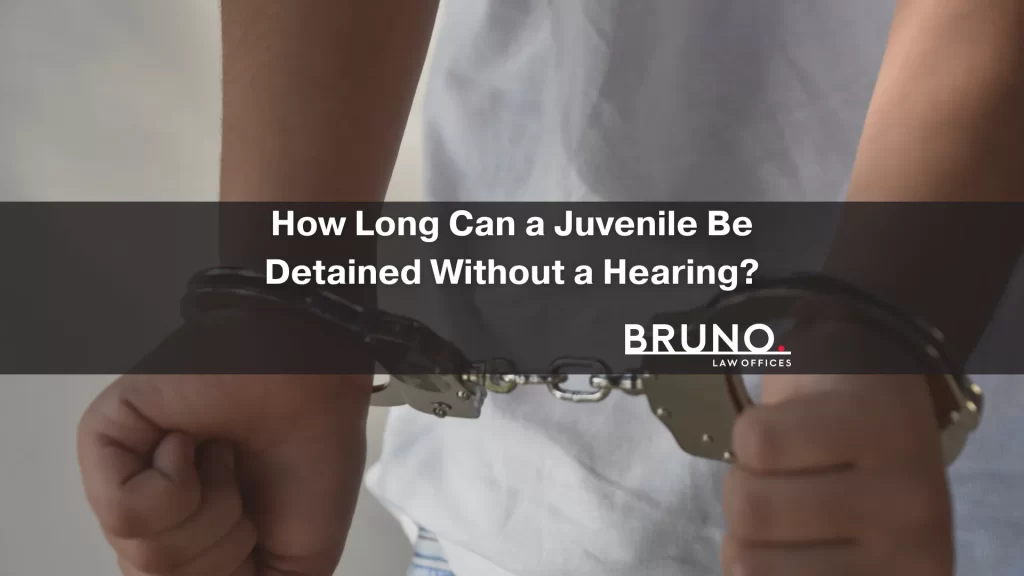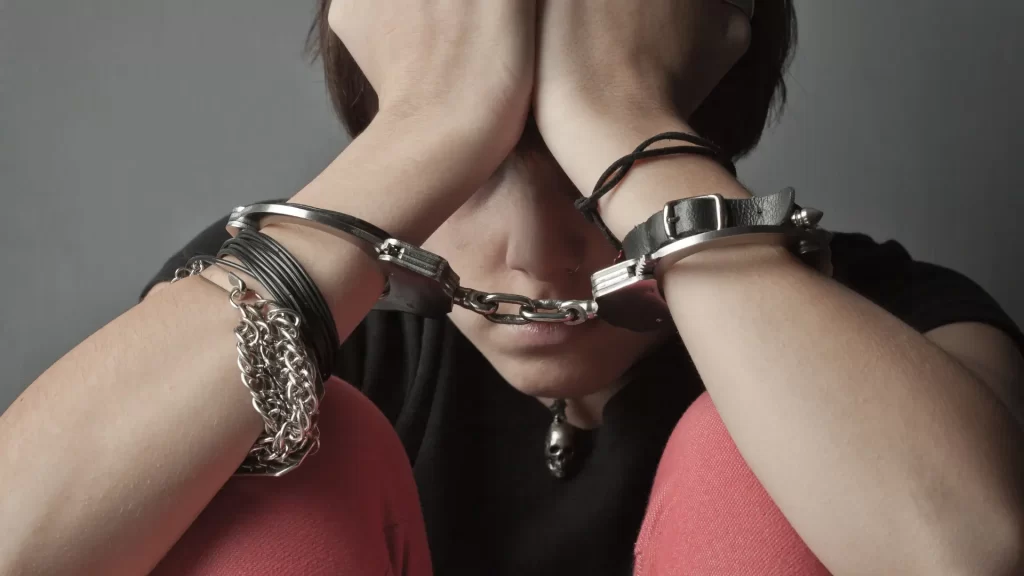Posted on Friday, December 1st, 2023 at 9:00 am
The juvenile criminal justice system differs from the adult criminal justice system. Navigating the juvenile justice system can be challenging for parents, especially if they don’t understand minors’ legal rights and treatment during detention. What is a detention hearing? Do juveniles get bail? What can your child expect if arrested or charged with a criminal offense?
At Bruno Law Offices, we know you have questions as a parent. You may wonder how long a juvenile can be detained without a hearing. Our elite Illinois criminal defense attorney can help you understand the juvenile justice system and answer your questions about the legal process for minors.
How Long Can a Juvenile Be Detained Without a Hearing?
In Illinois, a juvenile offender is an individual who has broken the law under 18. Most juvenile offenders face trial or consequences in the juvenile court system. Authorities may try minors accused of serious crimes, such as murder or sexual assault, as adults in the Illinois criminal court system.
Typically, law enforcement can only detain minors under 12 for six hours without a hearing. Minors between 12 and 16 can be held for at least 12 hours for a non-violent crime and up to 24 hours for a violent offense. This raises the question of how long a juvenile can be detained without a hearing in various circumstances.
Can a Juvenile Be Questioned Without a Parent or Legal Guardian?
Yes. Although it may seem unfair, law enforcement can often question a minor without a parent or guardian present, provided they reasonably attempt to contact them. Additionally, officers can immediately ask a juvenile before the parent or guardian arrives. However, when questioning takes place, a dedicated youth officer must be present. A youth officer is a law enforcement official who acts as a responsible adult and looks for the minor’s best interests.
Like adults, juveniles have legal rights. Most minors in stressful situations often don’t understand what’s happening and may fear appearing uncooperative to authorities. Even under the best circumstances, most young people do not know their legal rights following an arrest. In Illinois, the law designates juveniles as “protected persons,” meaning law enforcement cannot use deceptive techniques to obtain a confession.
What Happens Once a Juvenile Is Charged?
If authorities must hold the minor in custody, they must conduct a detention hearing within 40 hours. A judge reviews the case to determine if there is enough probable cause to believe the minor committed a crime. If so, the judge can proceed with the detention hearing and decide whether to release the juvenile to their parents or keep them in custody until trial.
Contact an Experienced Juvenile Criminal Defense Lawyer Now
Related Posts:
Teen Charged With DUI in Illinois

